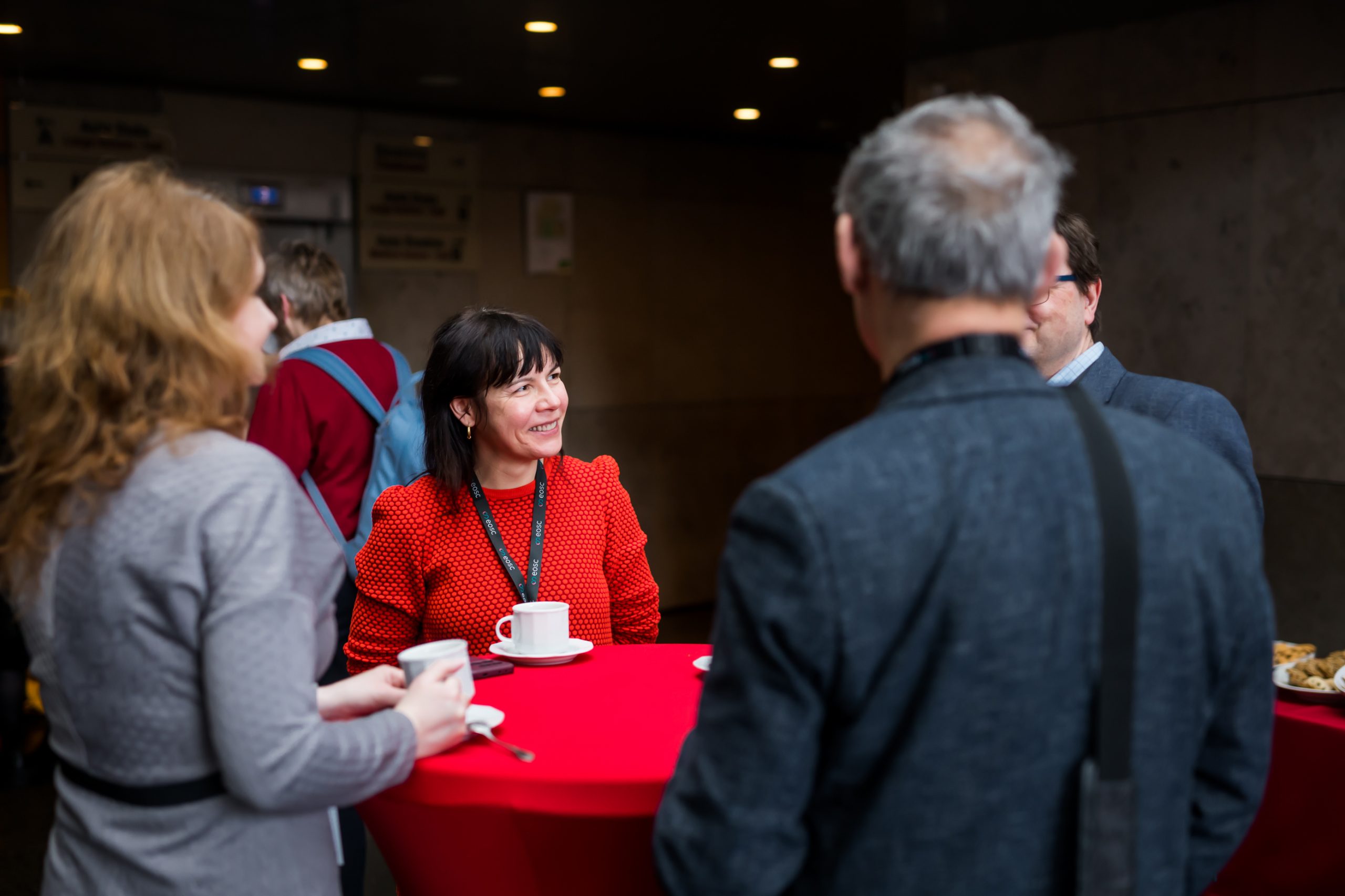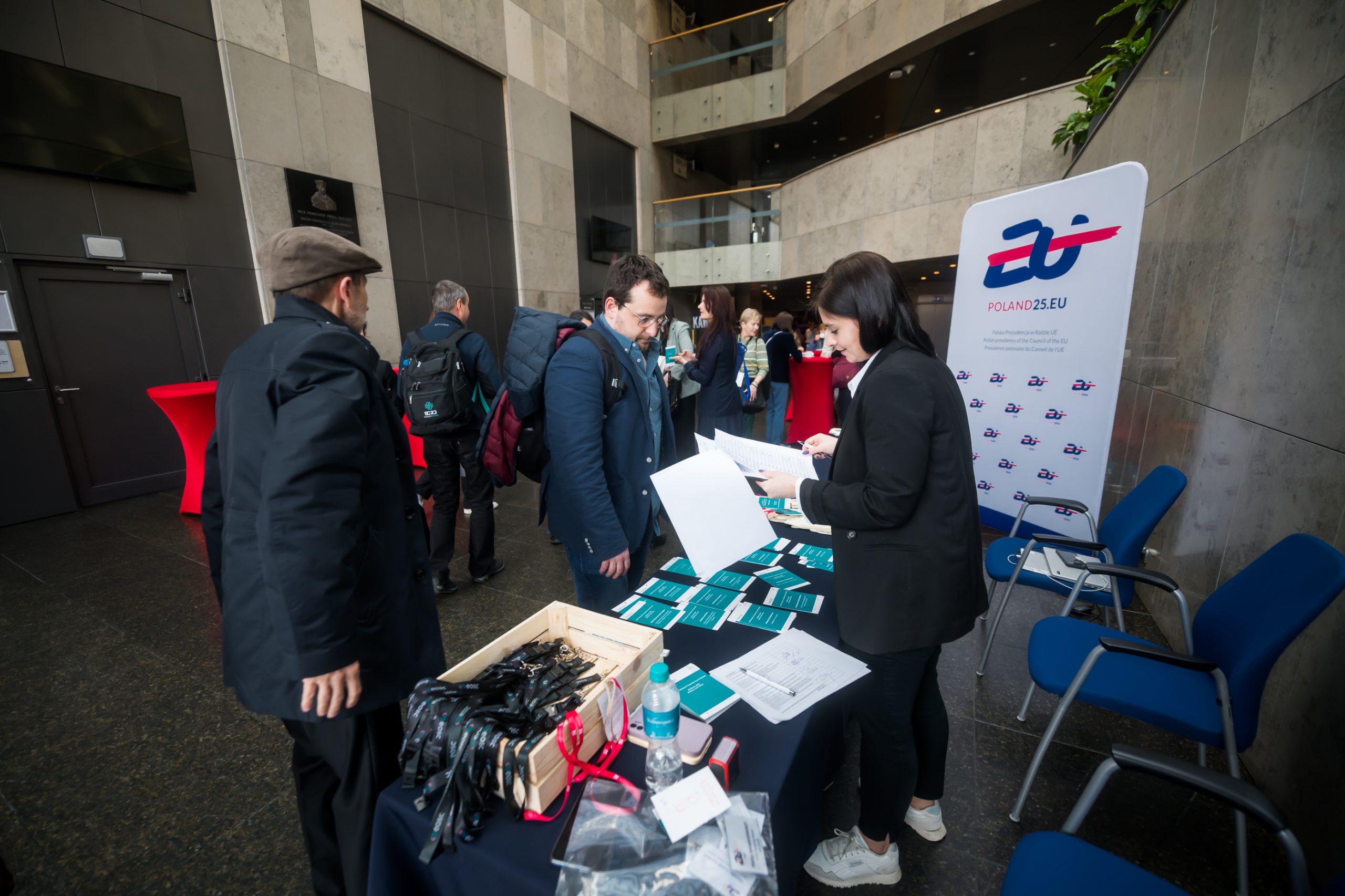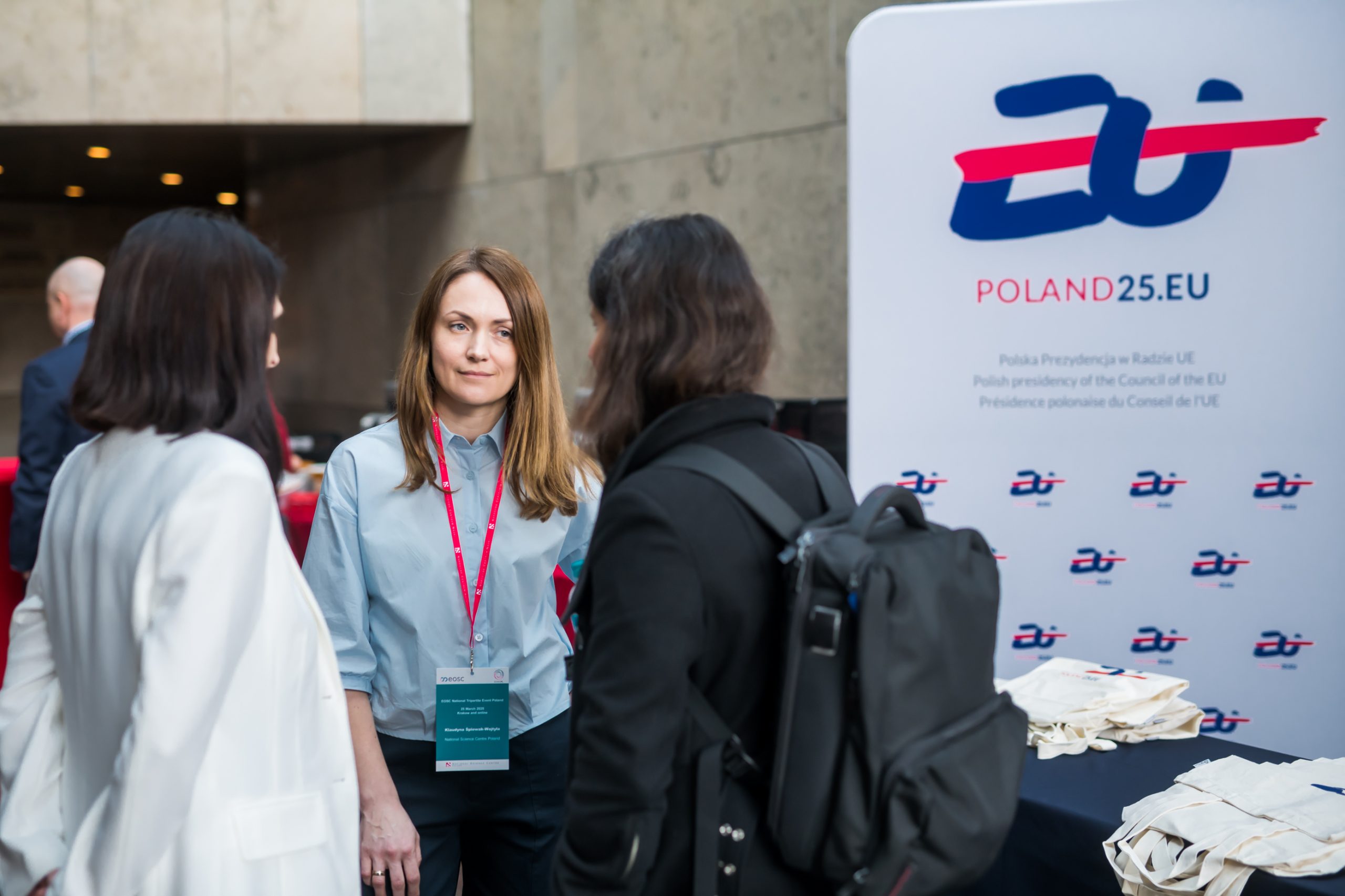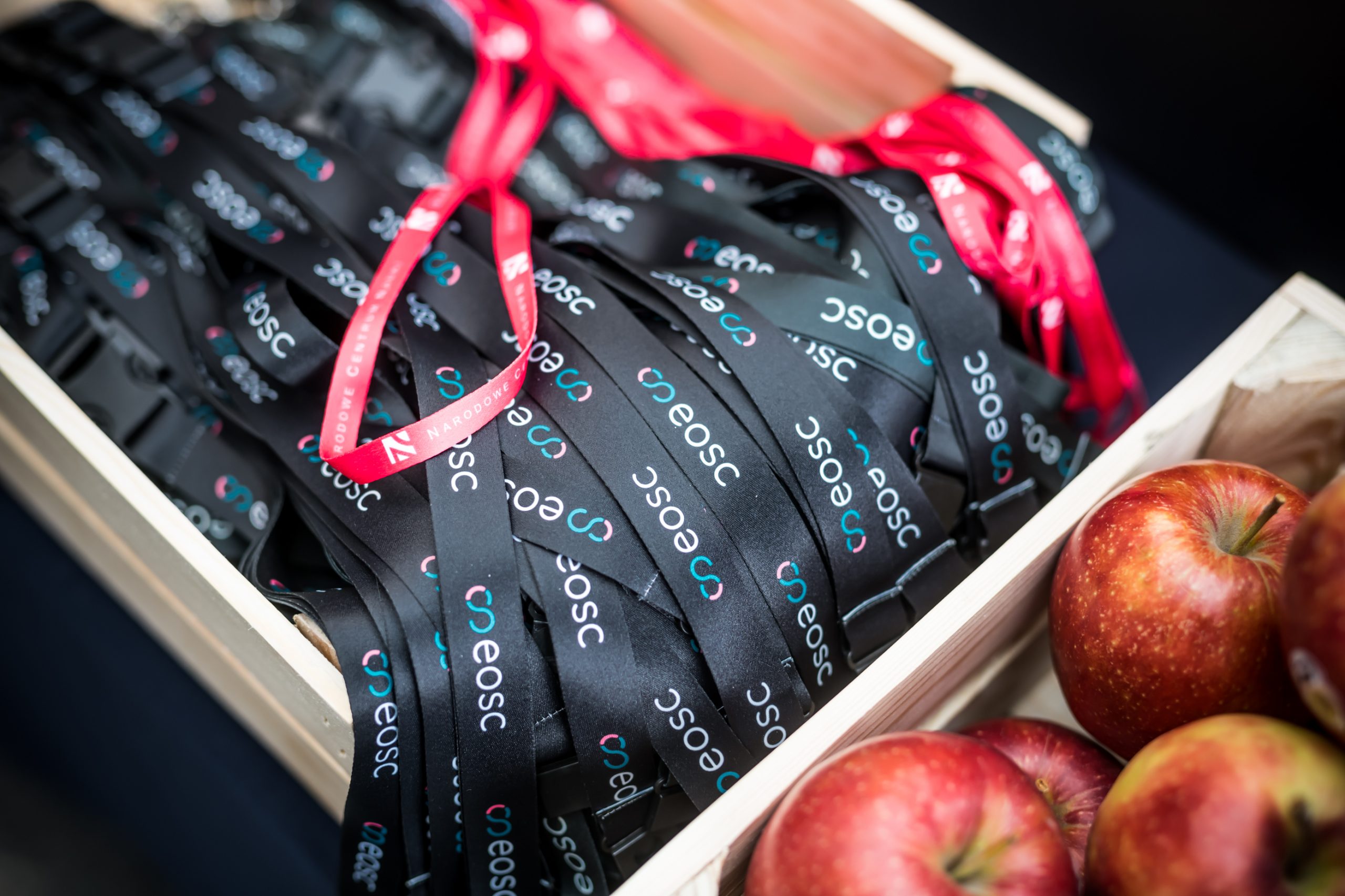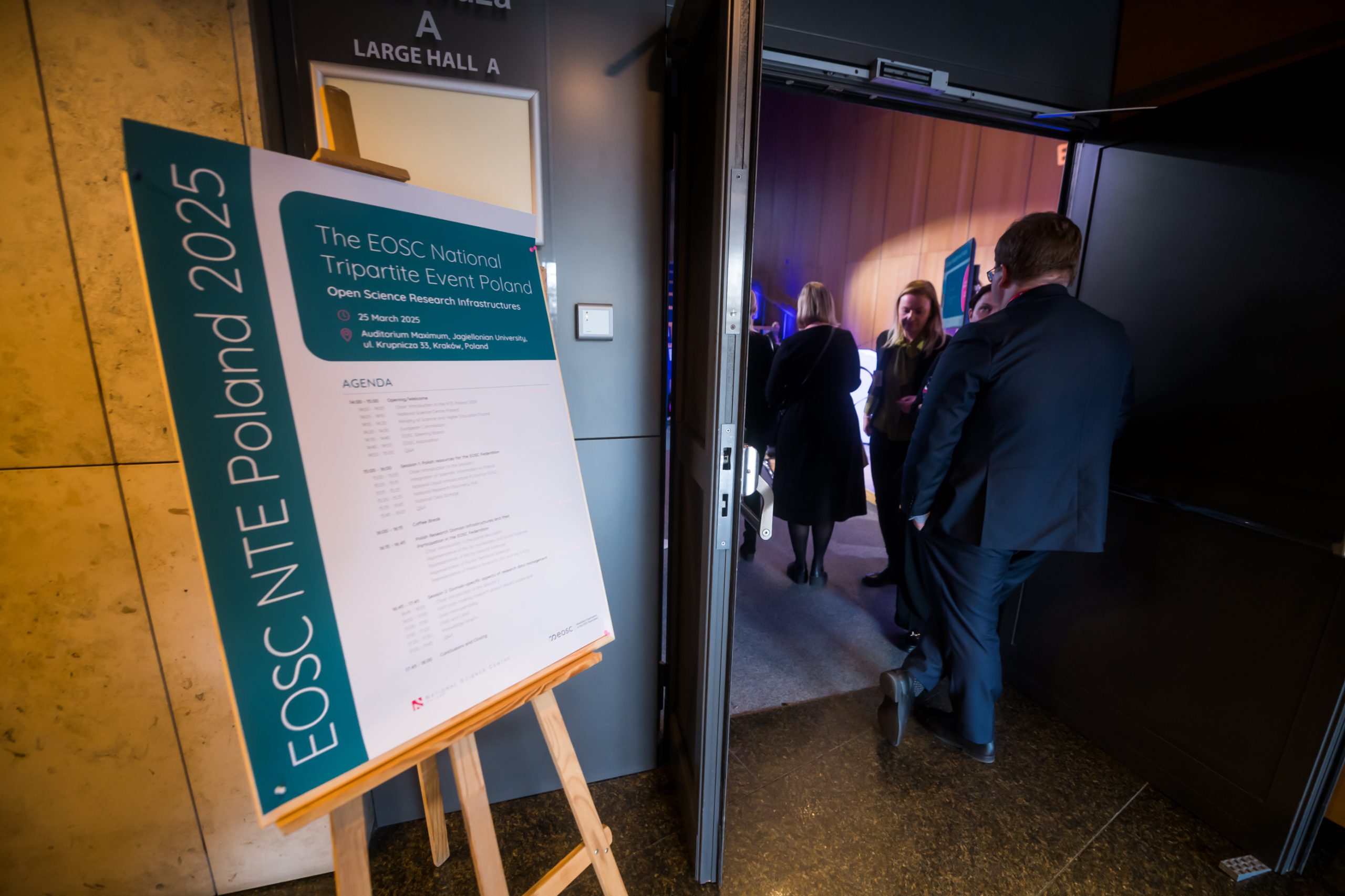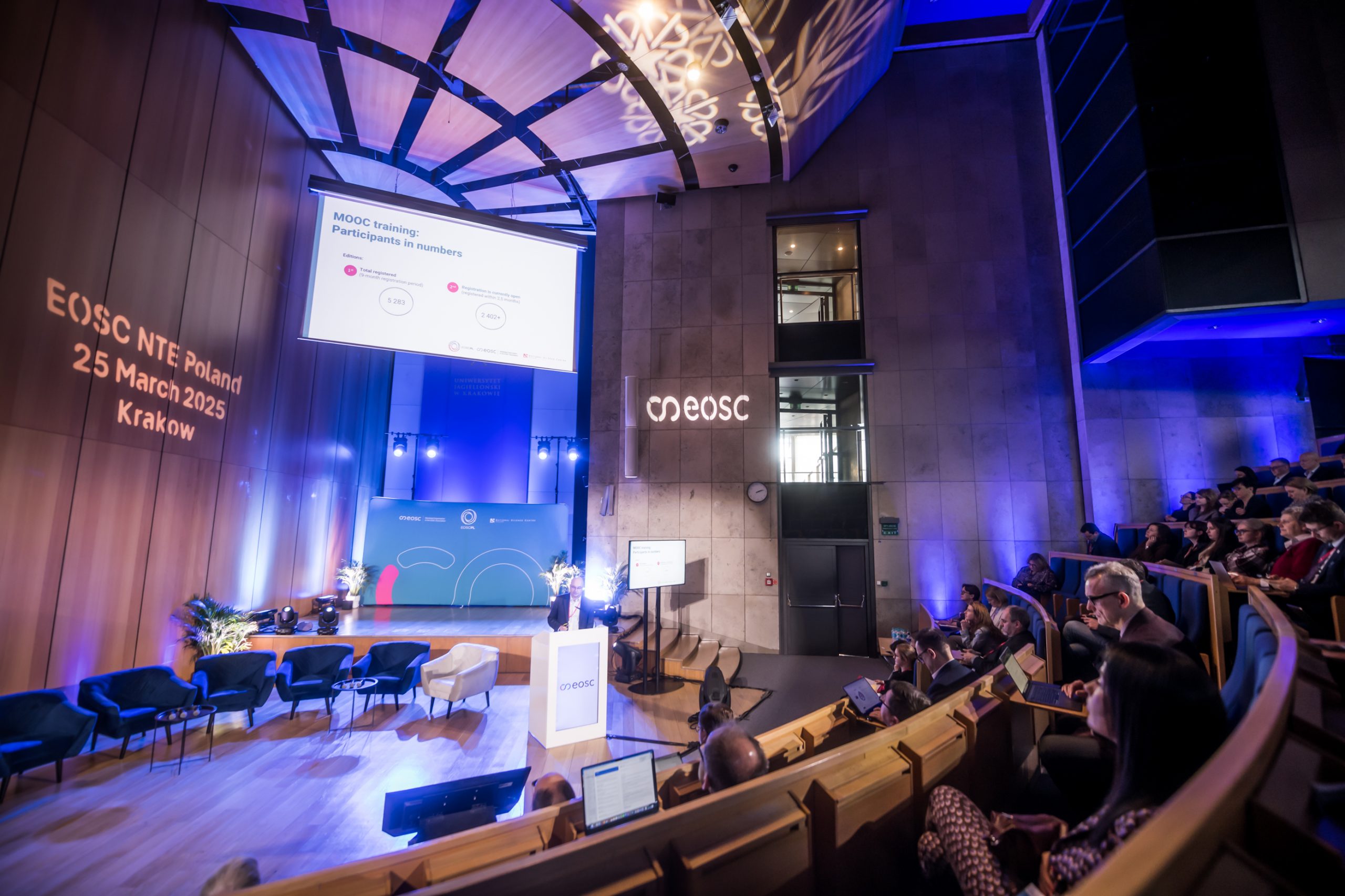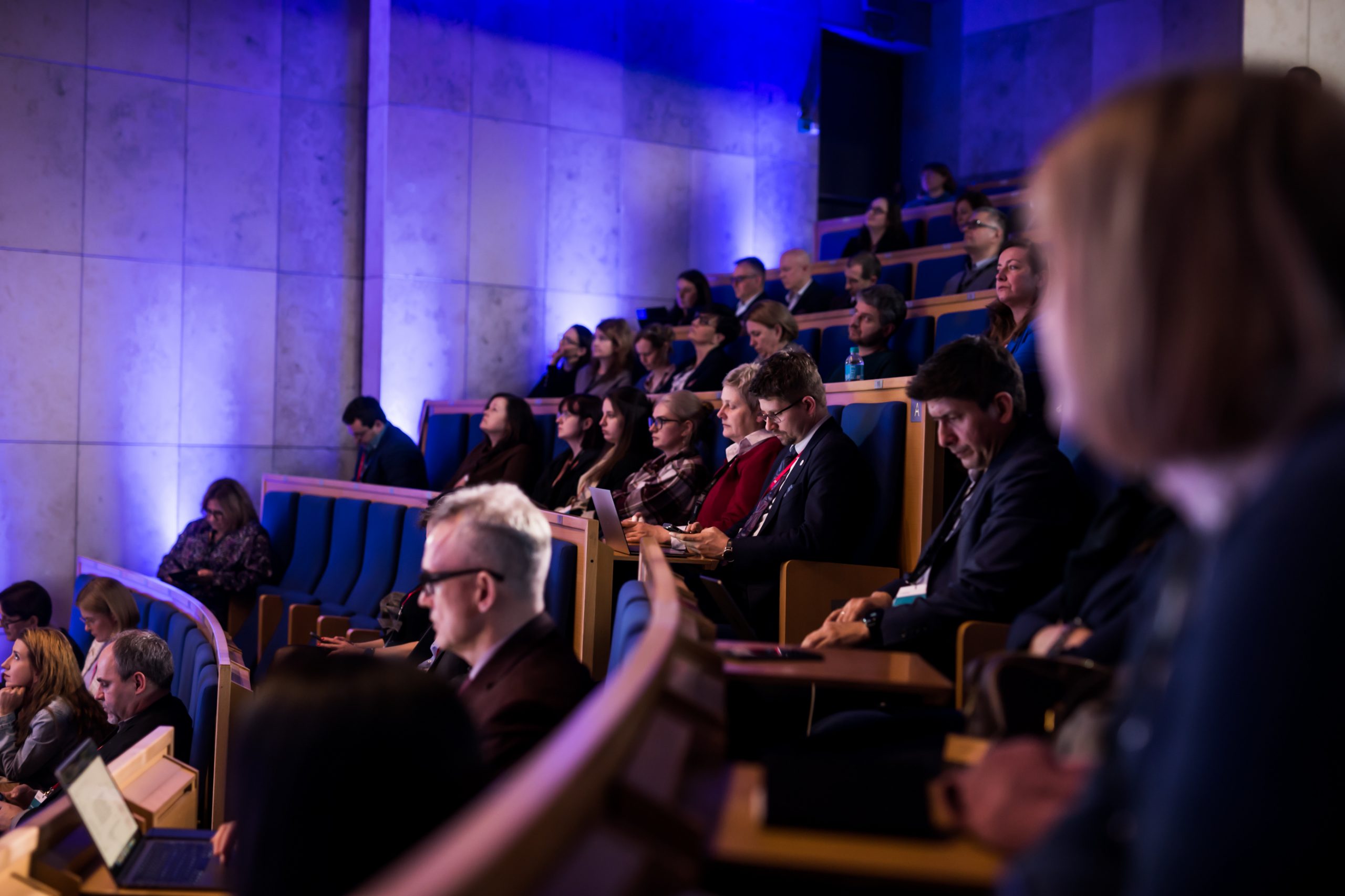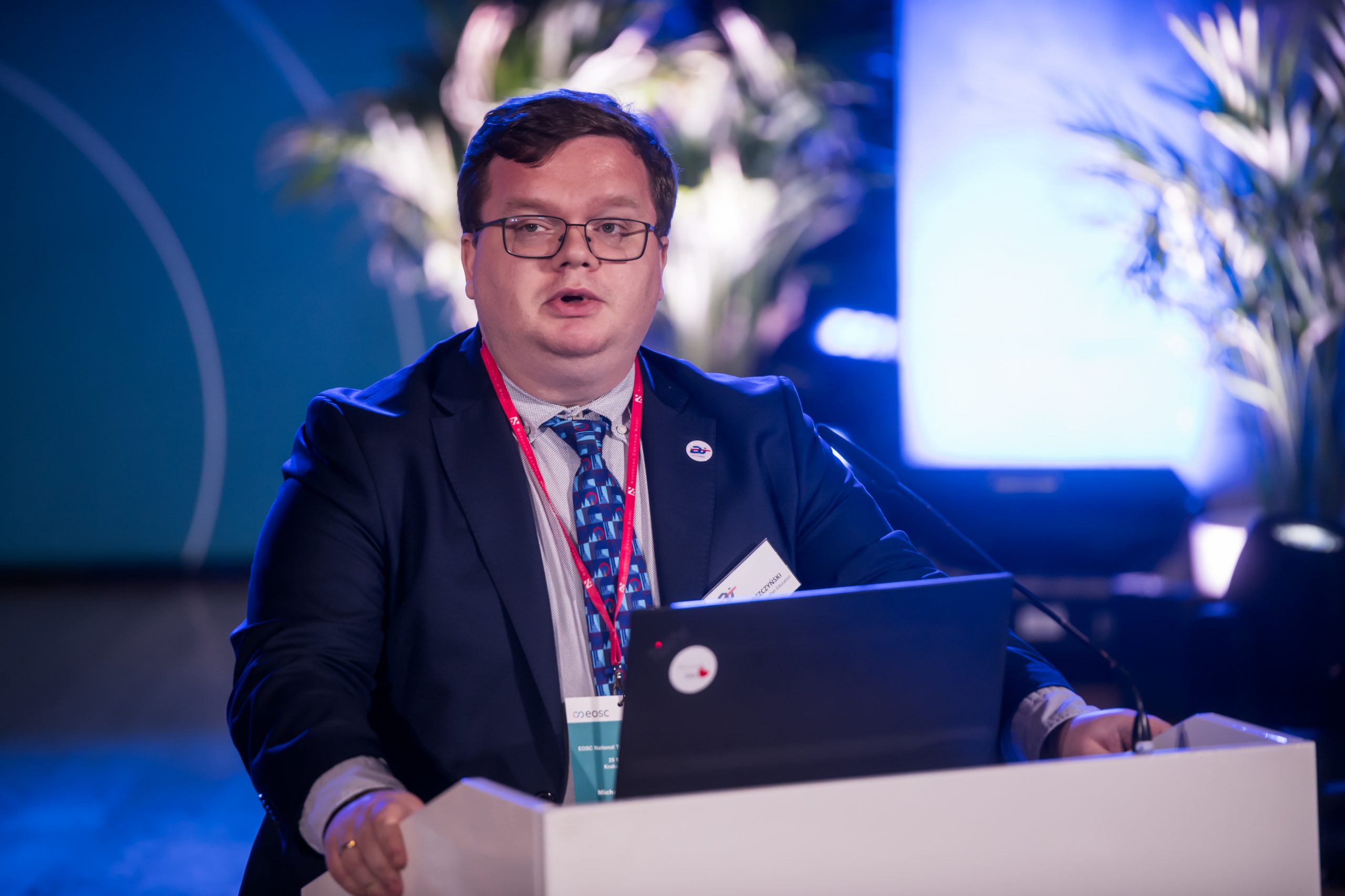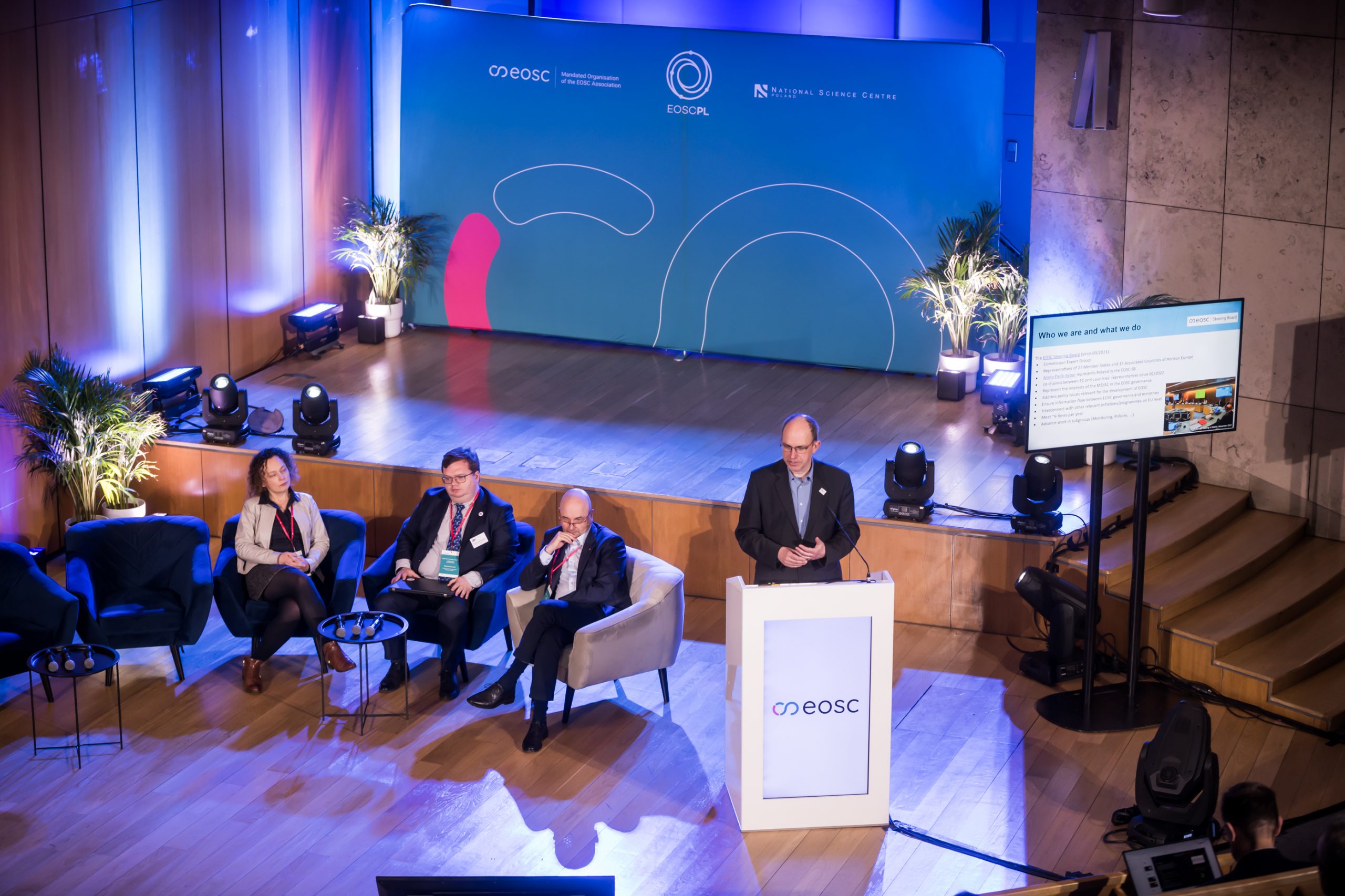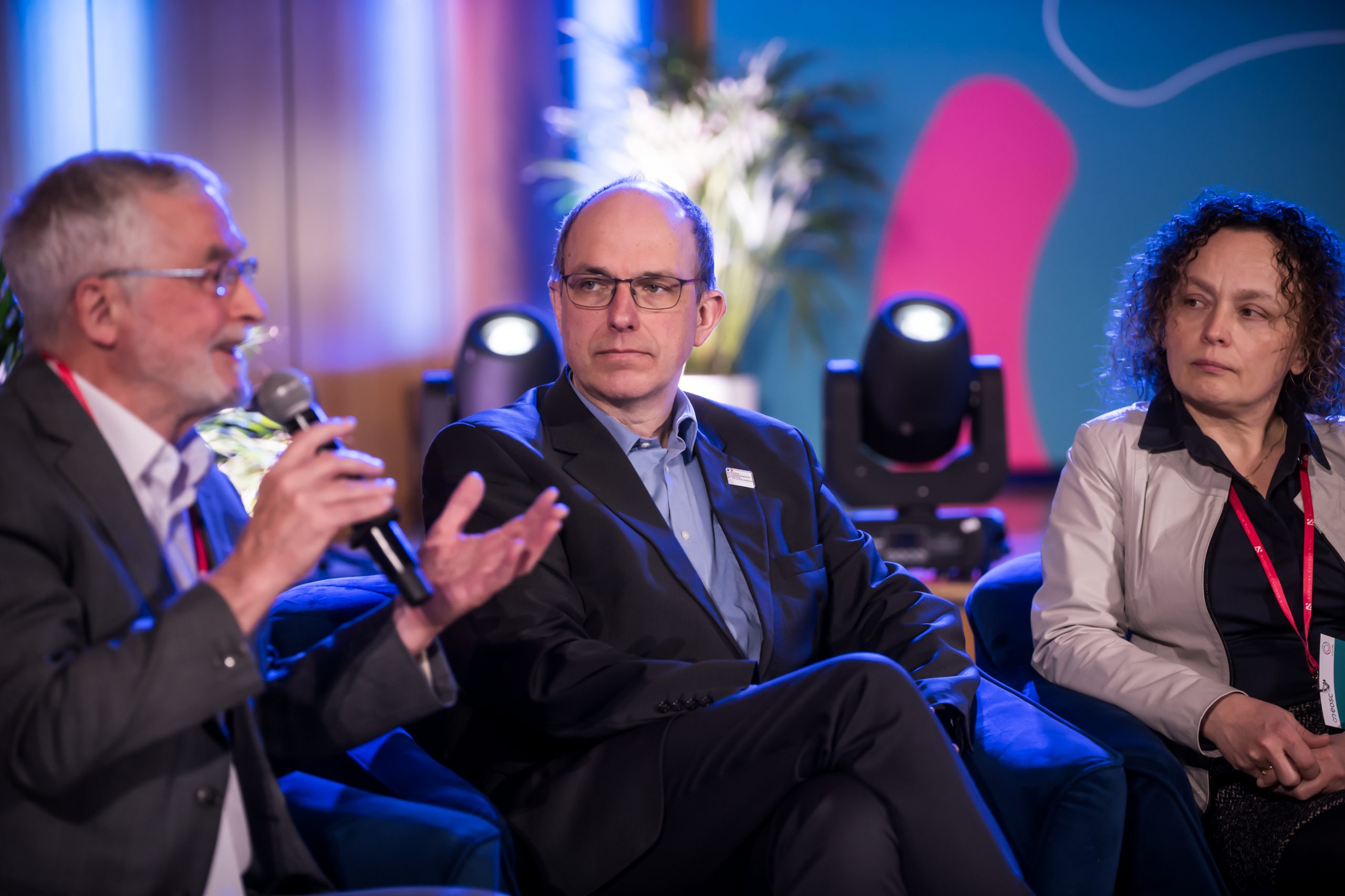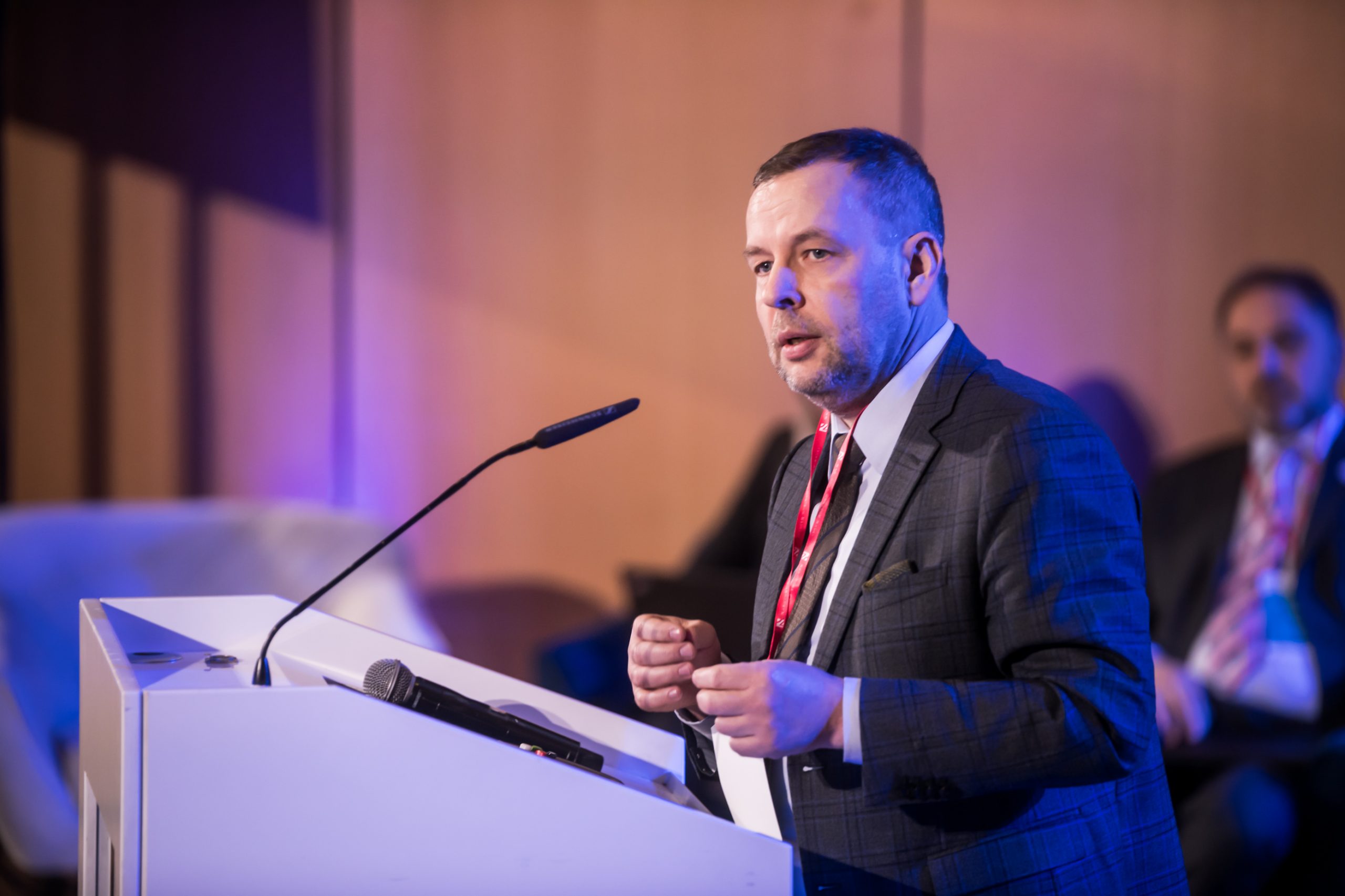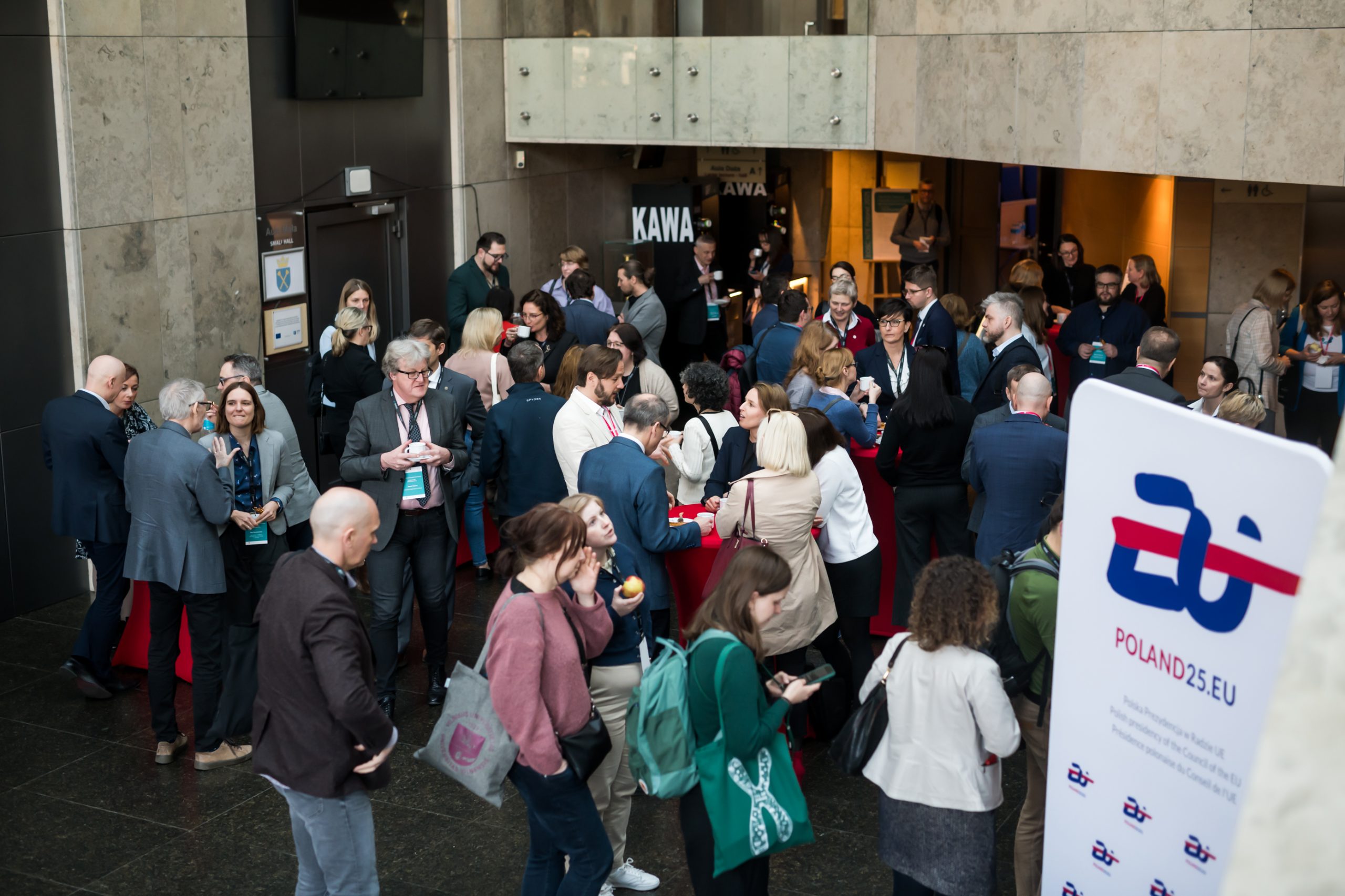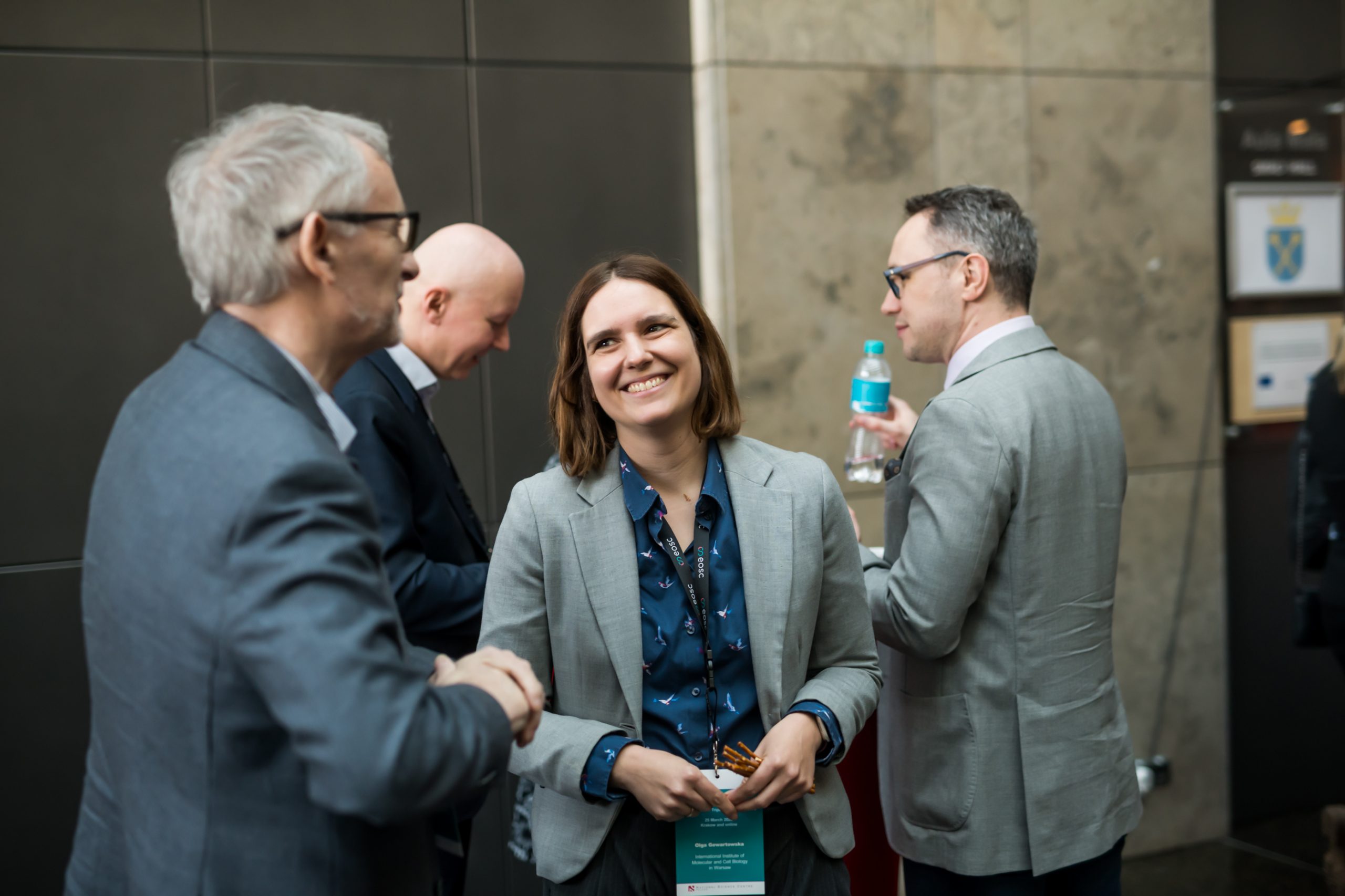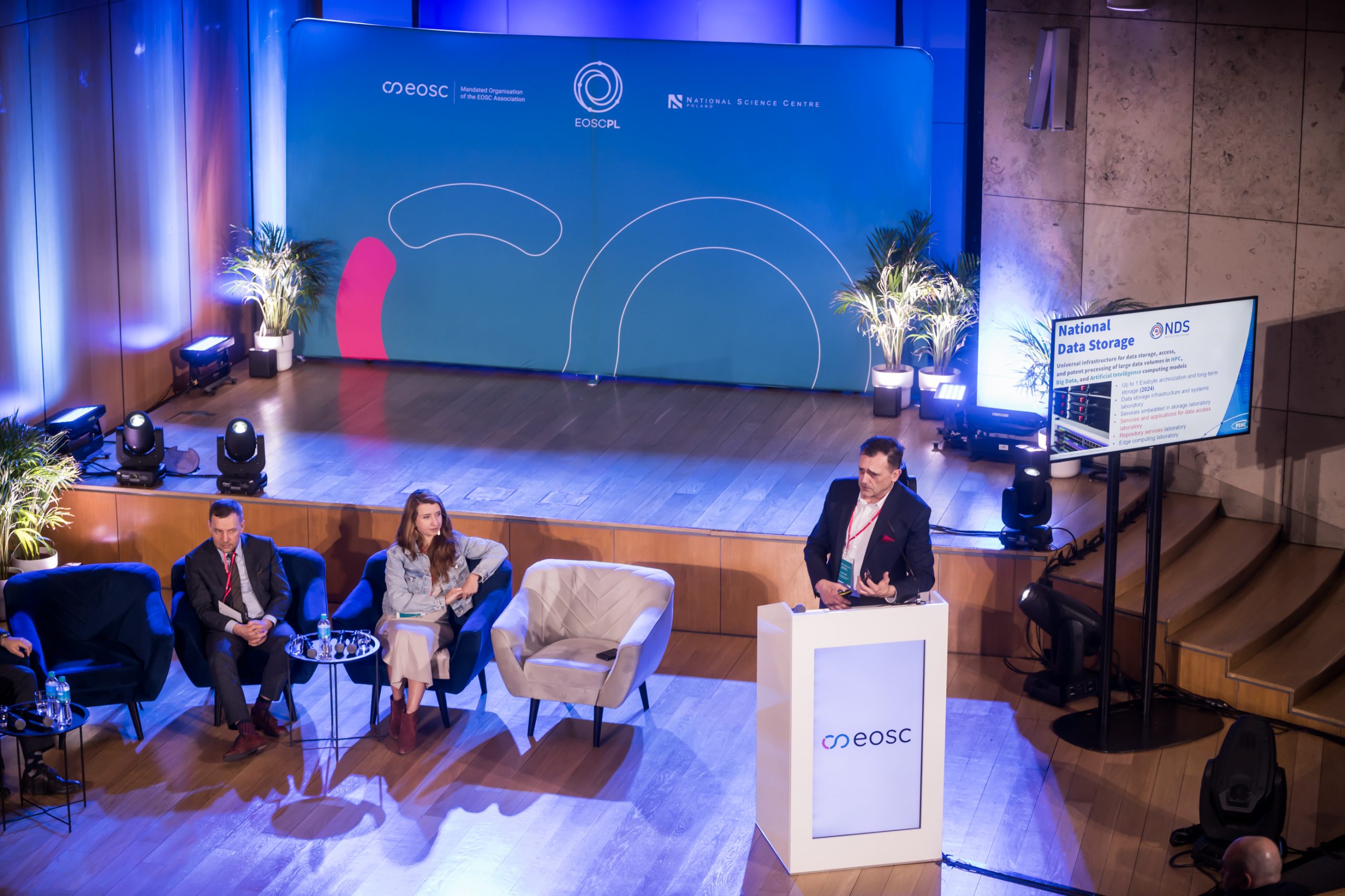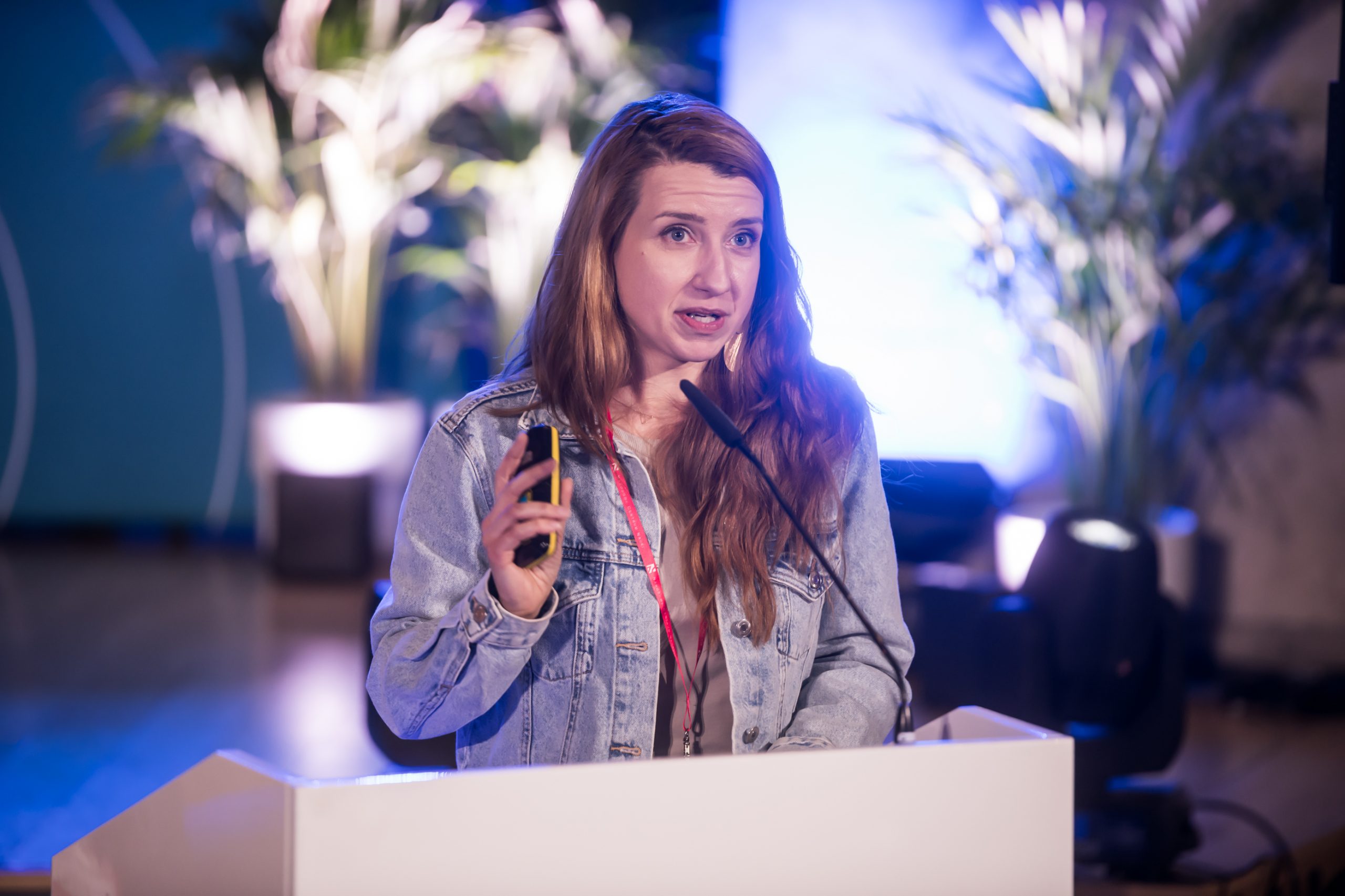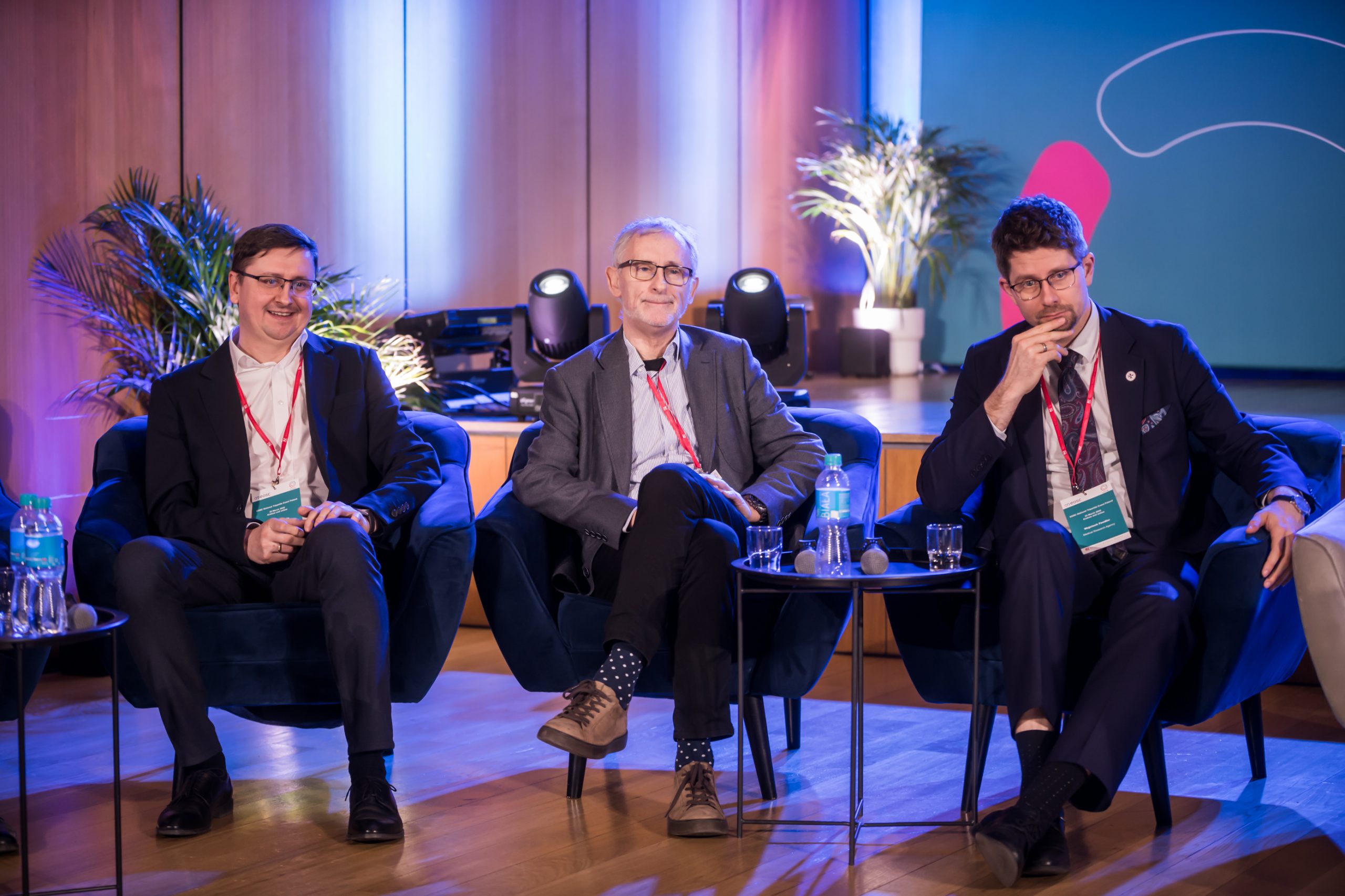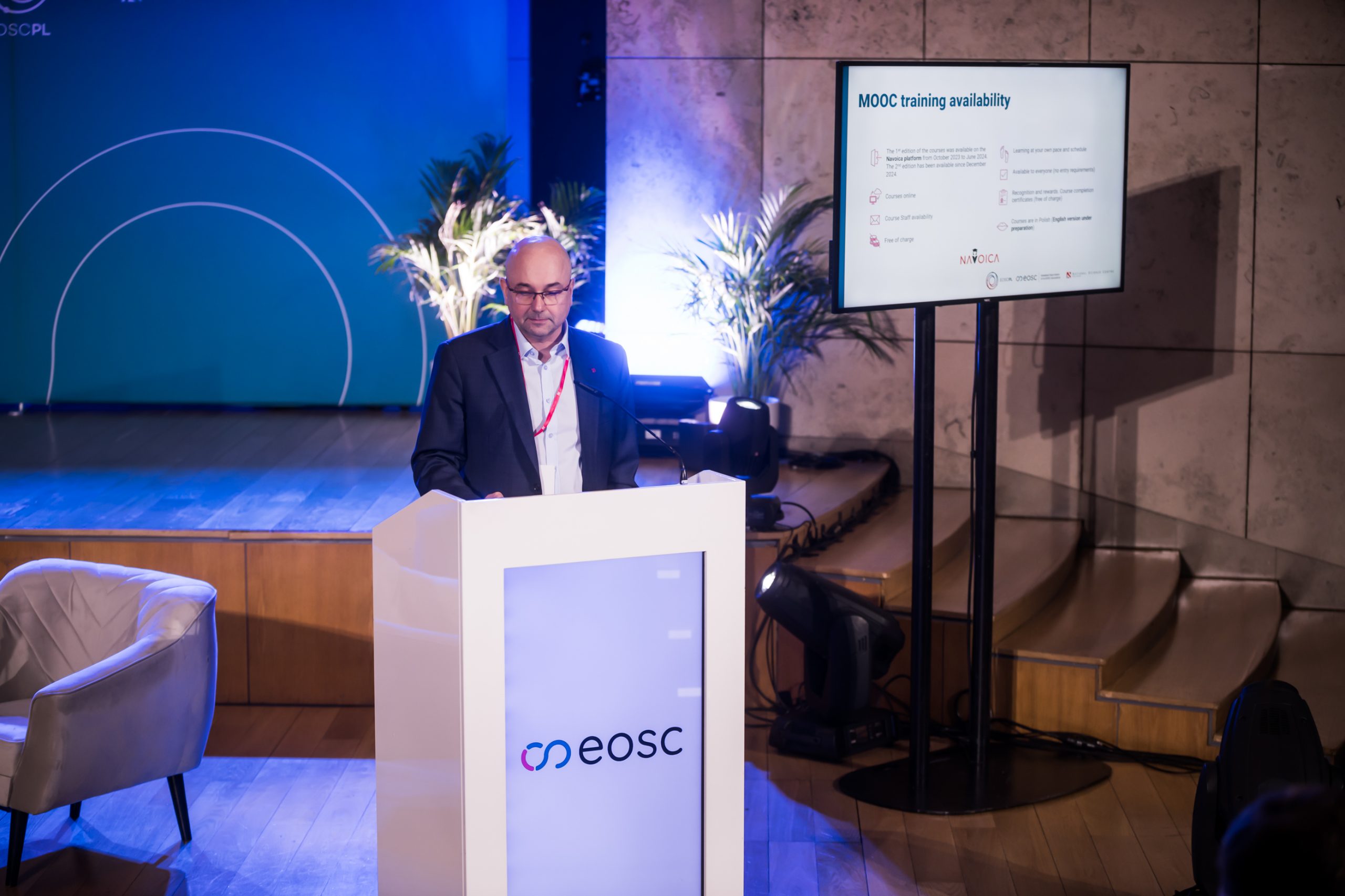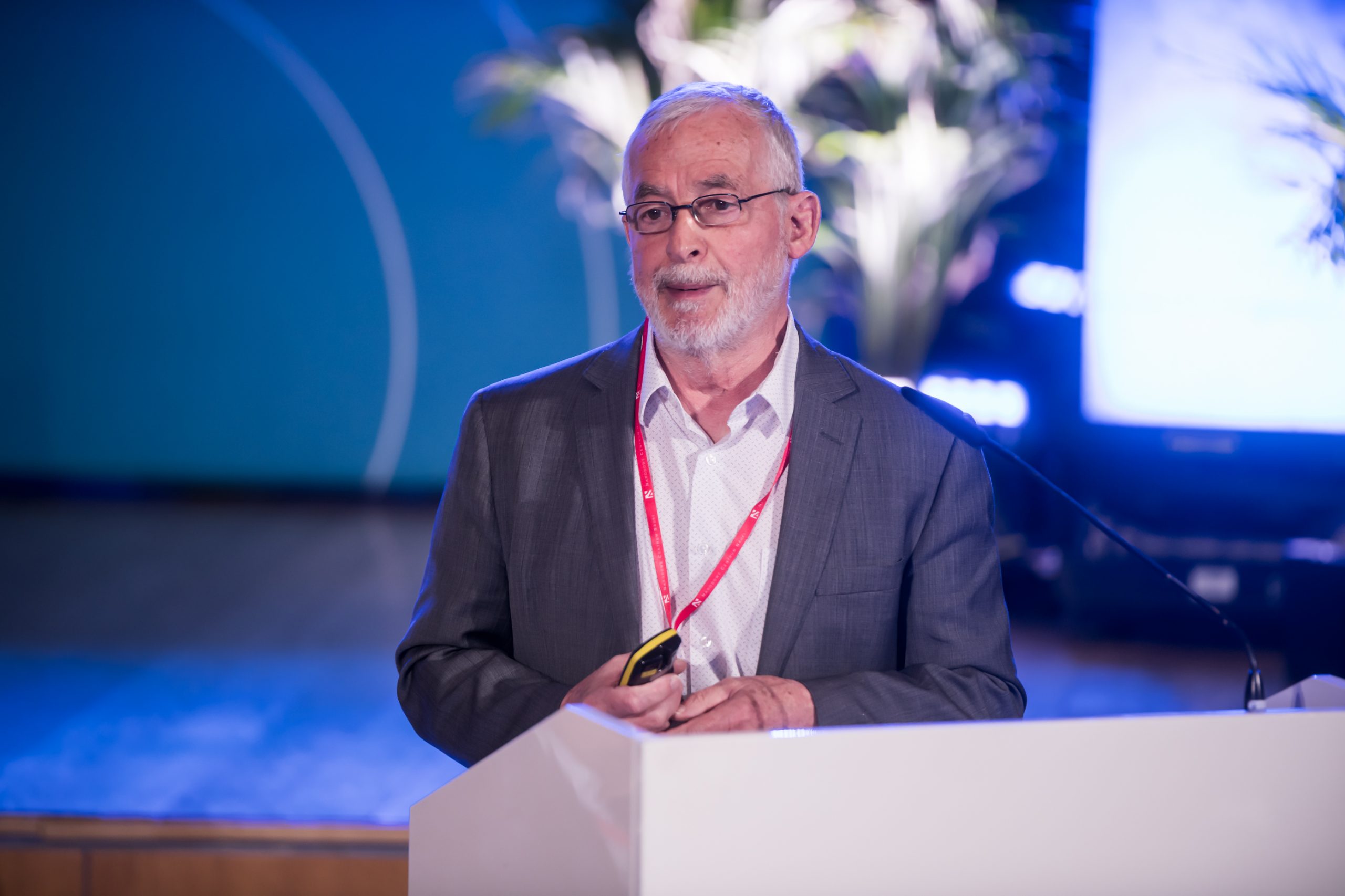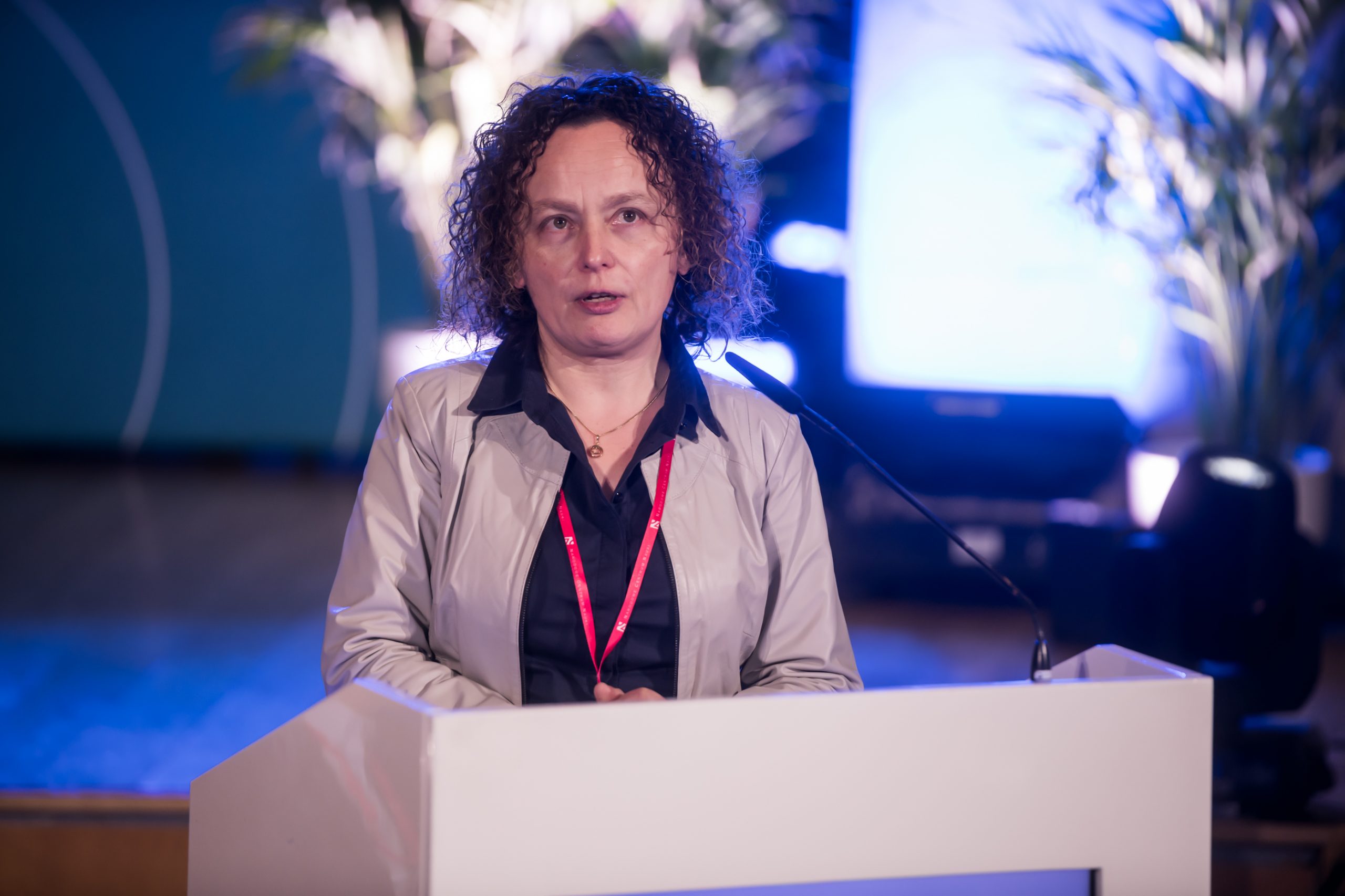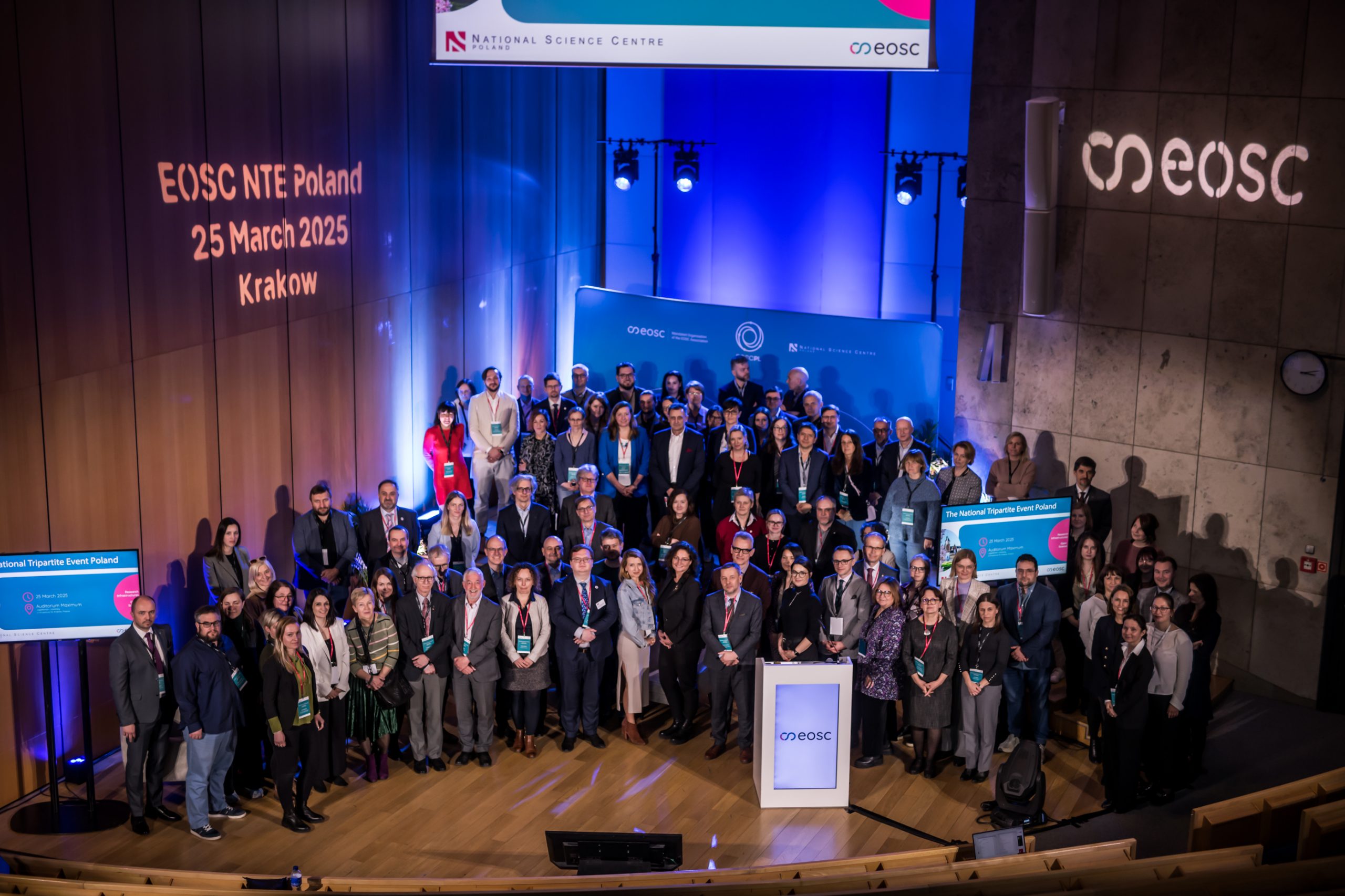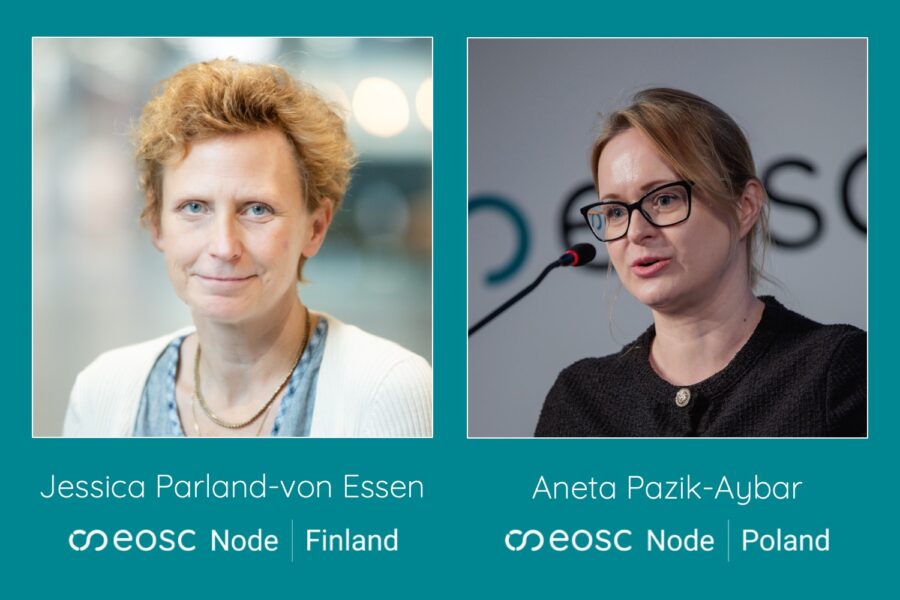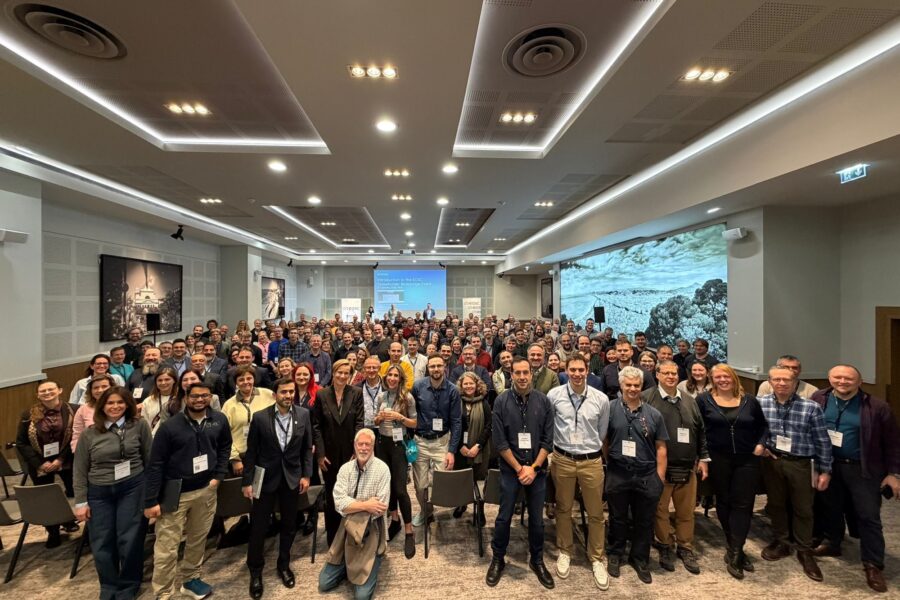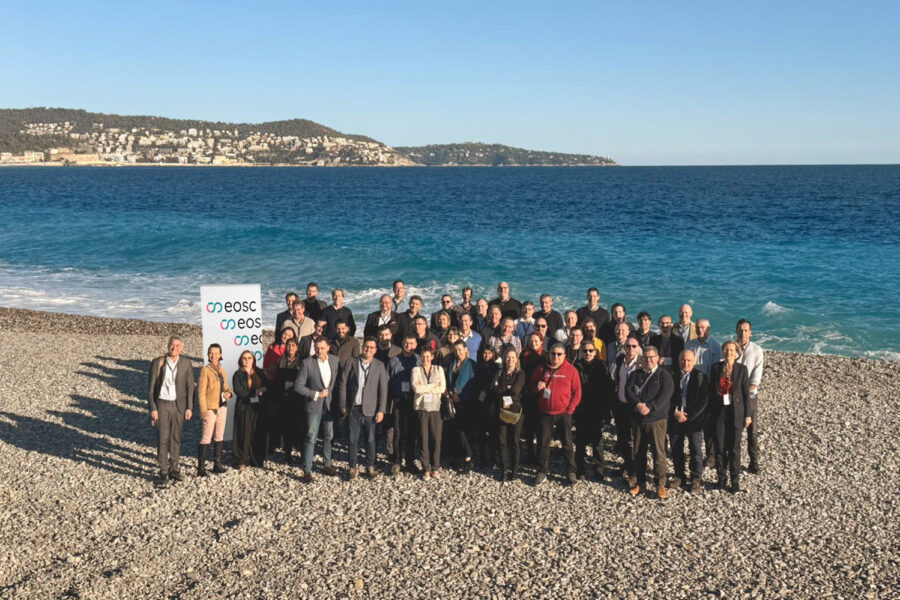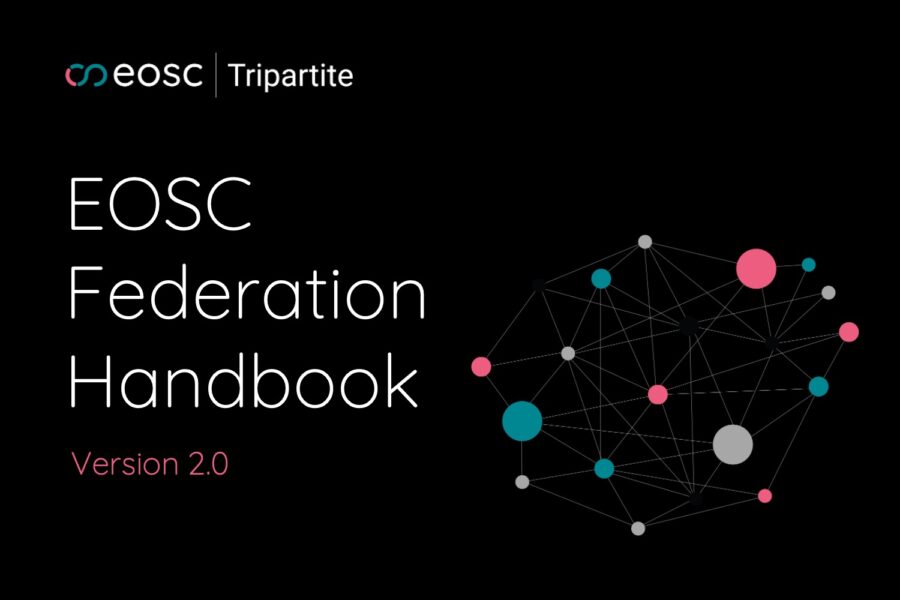KRAKÓW — On 25 March 2025, the National Science Centre (NCN) hosted the third National Tripartite Event (NTE) in Poland, bringing together nearly 100 in-person participants in Kraków and 453 online viewers. As the build-up phase of the EOSC Federation kicked off in March, the event showcased progress so far and explored future benefits for the research community.
With insights from 24 experts, including representatives from 14 research-performing organisations (RPOs), 4 research-funding organisations (RFOs), and 6 infrastructures, the NTE offered a dynamic platform for engaging discussions.
Opening reflections from the Polish Ministry of Science and NCN
The event was inaugurated by Krzysztof Jóźwiak, Director of NCN, who emphasised EOSC’s strategic importance in increasing national competitiveness and accelerating scientific innovation. He underscored the transformation of the European Research Area (ERA), highlighting the critical role of artificial intelligence and machine learning in the future of research. NCN’s active involvement in EOSC-PL and commitment to shaping the Federation were also stressed.
Michał Goszczyński, Deputy Director at the Polish Ministry of Science and Higher Education, focused on the significance of FAIR data practices. He remarked that while EOSC is built as a technically advanced infrastructure, its ultimate goal is to promote excellence in science. Welcoming the anticipated launch of the EOSC-PL National Node, he stated that EOSC and research infrastructures are core elements of Poland’s science strategy.
Tripartite perspectives
Kathrin Winkler of European Commission’s Directorate-General for Research and Innovation (DG RTD) emphasised that one of the key Priority Areas of the European Research Area’s policy agenda is to boost the visibility and usage of the EOSC EU Node while expanding the EOSC Federation. At the same time, the monitoring framework needs to be improved so that EOSC can efficiently support productive research and meet researchers’ needs—especially when it comes to FAIR data.
Volker Beckmann, representing the EOSC Steering Board, urged the development of a stable post-2027 EOSC model, emphasising the need for clear communication among stakeholders and closer integration with initiatives such as EuroHPC and the European Data Spaces.
Karel Luyben, President of the EOSC Association, underlined the Association’s key role in representing the EOSC community. He remarked that a formal proposal was submitted to the European Commission and the EOSC Steering Board suggesting to entrust the Association with a mandate to coordinate the implementation of the EOSC Federation’s build-up phase.
Spotlight on Polish research infrastructures
The event continued with two thematic sessions and a debate exploring the role of Polish research infrastructures in EOSC-related initiatives. Presentations from Wojciech Sylwestrzak, the Interdisciplinary Centre for Mathematical and Computational Modelling at the University of Warsaw and Norbert Meyer, the Poznań Supercomputing and Networking Centre showcased newly funded EOSC-related projects. Roksana Wilk, from Cyfronet AGH presented a concept for a national research data discovery hub to improve data accessibility across disciplines.
Jarosław Protasiewicz, Director of the National Information Processing Institute, demonstrated how the Institute supports EOSC with a trusted digital environment for science and higher education data.
Domain-specific data challenges
The second part of the event addressed domain-specific data issues. Krzysztof Kurek, Director of the National Centre for Nuclear Research, explained that raw data from CERN is practically unusable outside its immediate context, while astrophysics data is often ready for use and EOSC-compatible. Wojciech Fendler, President of the Medical Research Agency, emphasised that legal ambiguity, public mistrust, and accountability fears are major obstacles to data integration. Michał Seweryn from BBMRI-PL expanded on this, stating that while technical barriers have largely been overcome by infrastructures like ELIXIR and BBMRI-ERIC, the real challenge lies in gaining societal trust and demonstrating demand for services within Poland.
Tomasz Parkoła from PCSS and Maciej Piasecki from CLARIN-PL confirmed the readiness of humanities and social sciences infrastructures to engage with the EOSC Federation but there is a need for greater formal clarity regarding participation.
Use cases and long-term strategies
The final panel showcased practical use cases illustrating solutions for data interoperability, long-term sustainability, and the implementation of FAIR principles and knowledge graphs. Marcin Wichorowski from the Institute of Oceanology of the Polish Academy of Sciences shared lessons learned from the Svalbard Integrated Earth Observing System and the Polish Ocean Data Information System (ECUDO), focusing on the integration of heterogeneous data, also referenced the success of the Blue-Cloud project. As indicated, the current success is oceanological data is an effect of ongoing long-term efforts dating back to the 1990s.
Wojciech Fendler from the Medical Research Agency discussed their approach to the as FAIR as possible concept, with several working groups exploring how to exchange data between institutions in Poland and across Europe. Magdalena Szuflita-Żurawska presented the sustainability of tools and solutions that should extend beyond project timeframes to support the long-term goals of EOSC. Maciej Maryl focused on the utility of knowledge graphs, drawing on insights from the GRAPHIA and LUMEN projects.


